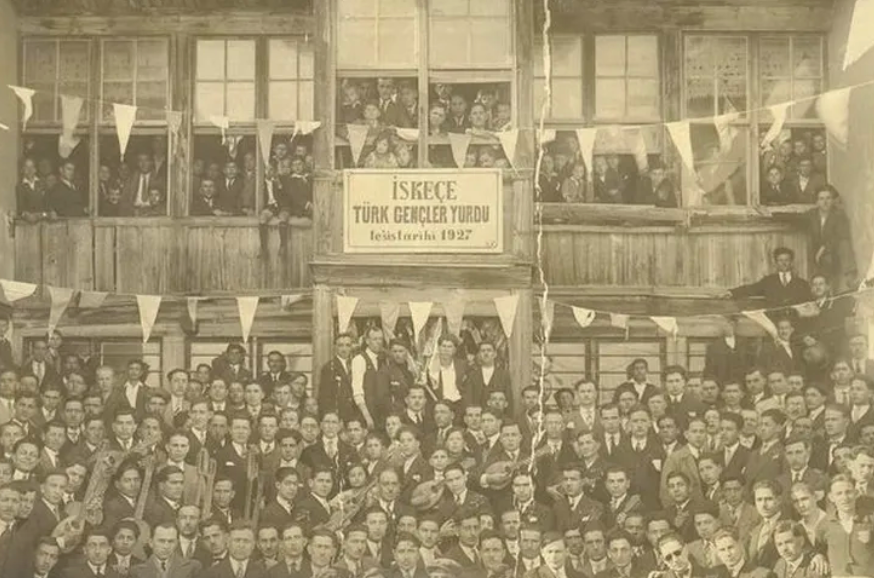Preserving culture and legal rights against the Greek authorities.
Preserving culture and legal rights against the Greek authorities.
The Turkish Union of Iskeçe (in Greek: Xanthi), the first civil society organization established by the Turkish minority in Western Thrace, is celebrating its 98th anniversary.
Founded on April 14, 1927, by members of the Turkish community in the region, the organization has been working to preserve the identity, culture, and values of Western Thrace Turks and to pass the heritage on to future generations.
In addition to its cultural activities, the Union has also been engaged in a legal struggle for the past 42 years. In 1983, the Greek authorities shut the organization down, citing the use of the word “Turkish” in its name. The European Court of Human Rights (ECHR) later ruled that Greece had violated the organization’s rights. However, Greece has refused to implement this decision for the past 17 years and continues to deny the organization’s legal status.
Ozan Ahmetoğlu, the chairman of the Turkish Union of Iskeçe, shared his views on the matter in an interview with “Aydınlık Europe”, the supplement of Türkiye’s Aydınlık newspaper of Europe.
Below, we present Ozan Ahmetoğlu’ statements translated in English.
The Turkish minority in Western Thrace
The Turkish minority in Western Thrace is a community that remained within Greece’s borders with the Lausanne Treaty. Their rights are guaranteed primarily by the Lausanne Treaty, as well as by bilateral agreements between Türkiye and Greece, various international conventions and provisions of the Greek Constitution.
Turkish Union of Iskeçe was the first civil society organization established just four years after the signing of the Lausanne Treaty. It was founded as a cultural association led by young Turks from the city of Xanthi.
What is its mission? To preserve our identity, culture, and traditions, and to pass on our values to future generations. Until 1983, our organization operated as a fully legal and recognized organization. It played a vital role in the social and cultural life of the Turkish community in Western Thrace.
Why? Because we are “Turkish”
However, in the 1980s, there came a shift in the Greek state’s policy toward the minority population in Western Thrace. Greece began to claim, “There are no Turks in Western Thrace”. What does that mean? It means a denial of our national identity. In other words, the state is denying the national identity of a community living within its borders. This is, first and foremost, a human rights issue.
From that point onward, a campaign began to shut down the Turkish Union of Iskeçe and the other minority associations that had the word “Turkish” in their names. Following this campaign, eventually, our organization’s legal status was revoked by court rulings. That decision essentially means to ban the Turkish national identity: Since “There are no Turks in the region, no organization can operate under that name”.
This decision marked the beginning of a deep and long-standing conflict between the state and the Turkish minority.
Greece refuses the ECHR ruling
The process that began in December 1983, when the police forcibly removed the association’s signboard, is still ongoing today. We launched and continued a legal struggle in the Greek courts for 25 years. Eventually, the Greek Supreme Court ruled against us and upheld the decision to shut down our organization.
We then took the case to the European Court of Human Rights, and here we won the case unanimously. Greece was found to have committed a violation of rights. However, for the past 17 years, Greece has refused to implement the ECHR ruling and has not restored the legal status of our organization.
This is a violation of fundamental democratic values and human rights. As the Turkish minority of Western Thrace, we reject this unjust decision of Greek authorities. We continue to work as if we have never lost our official status. Our founding date is April 14, 1927, and we continue our struggle in the 98th year.
















Leave a Reply